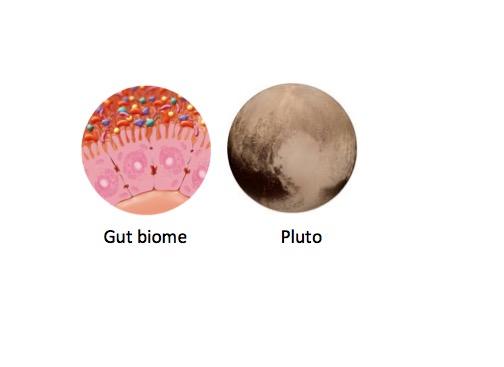
Microbiome. Microbiome. Microbiome. Microbiome. Microbiome. Microbiome.
Like fashion, science and medicine can be SO trendy. Over the past few years, alteration of the gut microbiome has been blamed for everything from obesity and diabetes to maybe even climate change on Pluto. But perhaps nowhere has it been invoked more than in the ongoing witch hunt against artificial sweeteners.
One convoluted theory after another has been proposed to try to explain why artificial sweeteners are as bad for you (or worse) than sugar itself. In particular, they alter the (sigh) gut microbiome and also fool the body into thinking that sugar has been consumed simply because they are sweet—something I have long debunked. And a paper, which "demonstrated" that fecal transplants from obese rats to normal rats caused the obesity by alteration of the gut microbiome was retracted due to fraud.
If this doesn't smell right, it's because it's a big pile of bullsweet, which was just demonstrated in a well-designed, prospective study in the journal Regulatory Toxicology and Pharmacology. No mice, no rats, no fraud and no nonsense.
V. Lee Grotz of McNeil Nutritionals and colleagues from five different medical centers should (but probably won't) put this nonsense to bed.
Gut taste receptor research has led to questions on low calorie sweeteners in glycemic control. Effects have been hypothesized based mostly on cellular and/or short-term animal studies. Reported is a 12-week clinical trial investigating the effects of sucralose on glycemic control. Sucralose had no effect on fasting or post-prandial glucose, insulin and C-peptide, or HbA1c.
V. Lee Grotz, et. al, Regulatory Toxicology and Pharmacology Volume 88, August 2017, Pages 22–33
This paper shows the big difference when science is done properly. Grotz and colleagues conducted a randomized, double-blind study which examined the effect of sucralose (brand name Splenda) on different glycemic parameters in 47 men who had normal blood glucose. The trial was conducted in Britain between 1995-1996, during which time sucralose was not used in the UK. The results could not be clearer.
The men were given either one gram of sucralose (1) per day (divided into thirds) or placebo, also three times per day at meal times. Both the sucralose and placebo were administered in capsules which were swallowed so that the presence or absence of taste could not act as a confounder.
The participants were screened for four weeks before the test began, given sucralose or placebo for 12 weeks, and then screened for an additional four weeks. Four parameters—fasting glucose, insulin levels, HbA1c (glycolated hemoglobin, a measure of glucose levels over time) and C-peptide (a biochemical precursor to insulin)—were measured. The results leave little room for interpretation. Nothing changed. There was no difference between the placebo and sucralose groups in any of the four measured parameters. 
HbA1c levels in volunteers who received either sucralose or placebo. The graphs for fasting blood glucose, insulin, and C-peptide looked the same. Source: Regulatory Toxicology and Pharmacology Volume 88, August 2017, Pages 22–33.
The conclusion of the authors cannot be a surprise:
The collective evidence is reviewed and supports that sucralose is without effect on glycemia.
Good luck arguing with that.
Note:
(1) A packet of Splenda contains 12 mg of sucralose. So, the men who received the sucralose capsules consumed the equivalent of 83 packets of Splenda per day. And it did nothing.



